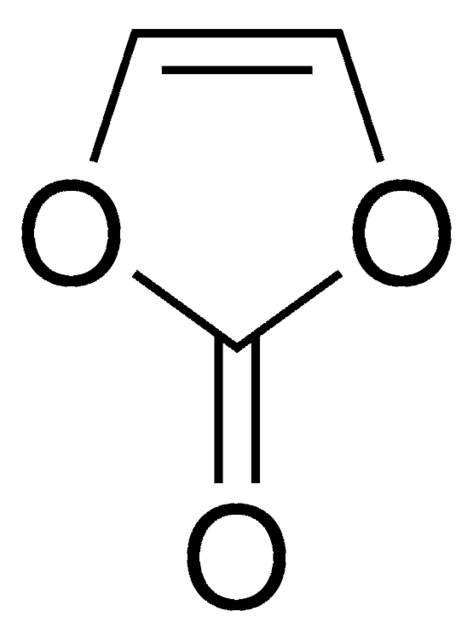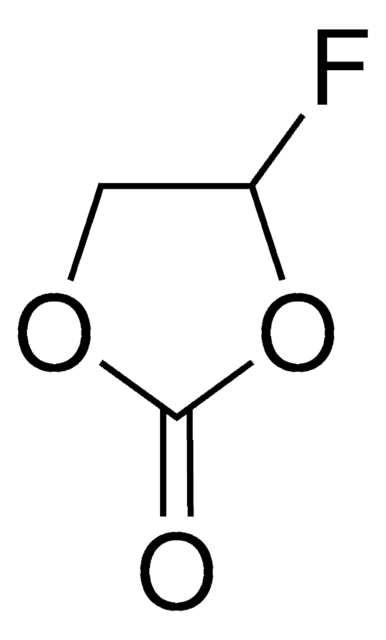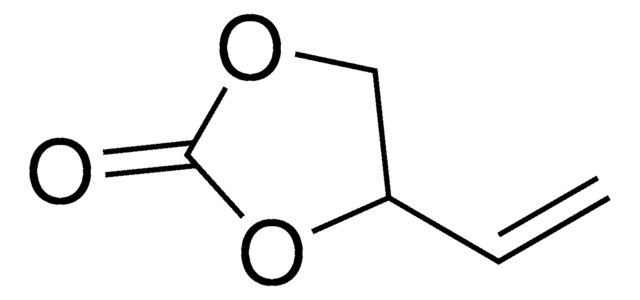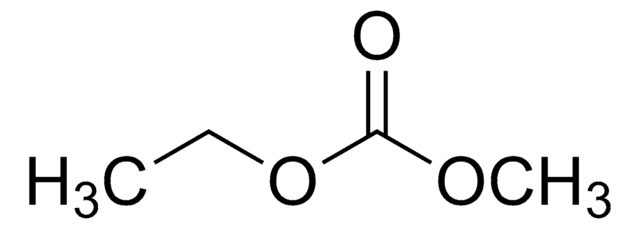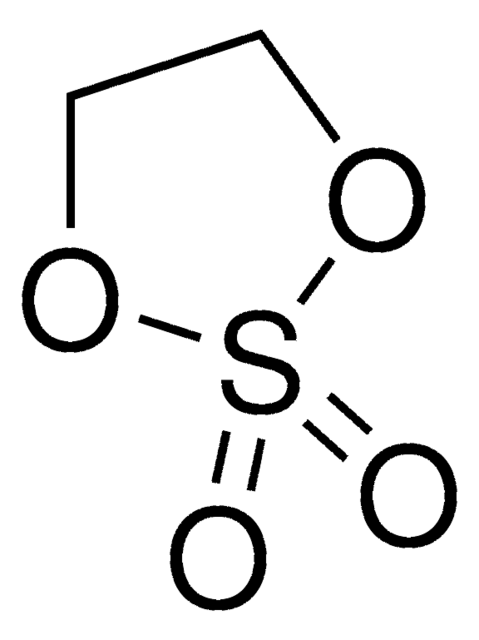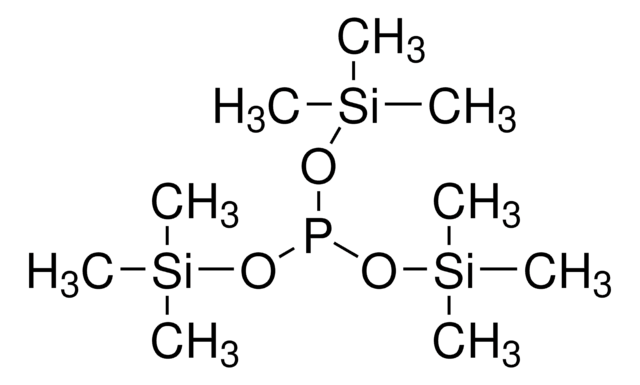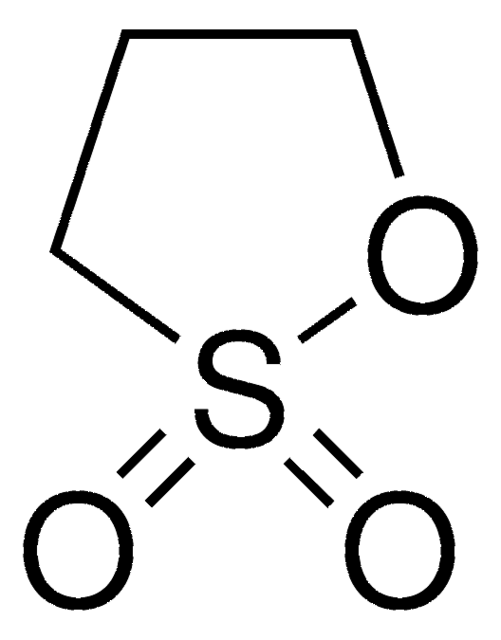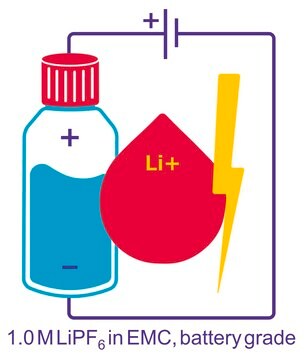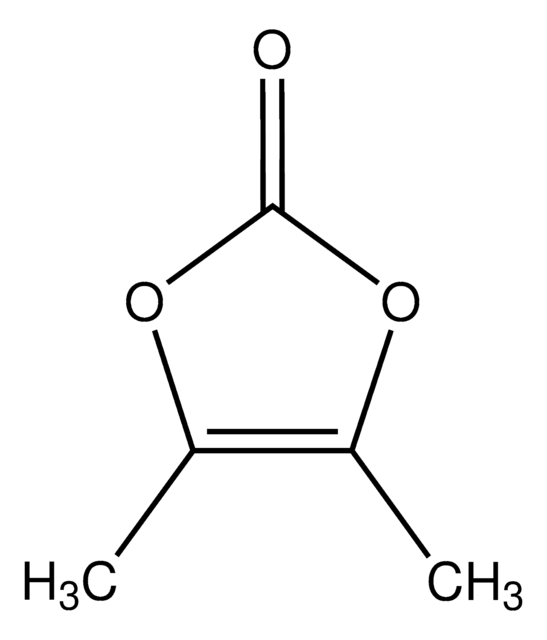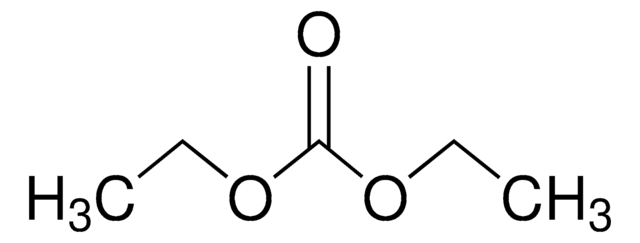809977
Vinylene carbonate
battery grade, 99.5%, acid <200 ppm, H2O <100 ppm
Sinónimos:
1,3-Dioxol-2-one, VC
About This Item
Productos recomendados
grade
battery grade
Quality Level
description
Moisture: <10 ppm
Acid content: <10 ppm
assay
99.5%
form
liquid
impurities
≤100 ppm H2O
≤200 ppm acid
refractive index
n20/D 1.421 (lit.)
bp
162 °C (lit.)
mp
19-22 °C (lit.)
density
1.355 g/mL at 25 °C (lit.)
application(s)
battery manufacturing
SMILES string
O=C1OC=CO1
InChI
1S/C3H2O3/c4-3-5-1-2-6-3/h1-2H
InChI key
VAYTZRYEBVHVLE-UHFFFAOYSA-N
¿Está buscando productos similares? Visita Guía de comparación de productos
Categorías relacionadas
General description
Application
Features and Benefits
✔ Improves Anode Performance
✔ Forms Stable SEI
✔ Increases Cycle Life
Other Notes
These additives have low water content (less than 100 ppm). Please handle under inert and moisture free environment (glove box). Keep containers tightly closed. Keep away from heat and ignition sources. Store in a cool and dry place. Avoid storing together with oxidizers.
Legal Information
Related product
signalword
Danger
Hazard Classifications
Acute Tox. 3 Dermal - Acute Tox. 4 Oral - Aquatic Chronic 2 - Eye Dam. 1 - Skin Irrit. 2 - Skin Sens. 1 - STOT RE 2 Oral
target_organs
Liver,Stomach
Storage Class
6.1C - Combustible acute toxic Cat.3 / toxic compounds or compounds which causing chronic effects
wgk_germany
WGK 3
flash_point_f
176.0 °F - closed cup
flash_point_c
80 °C - closed cup
Elija entre una de las versiones más recientes:
¿Ya tiene este producto?
Encuentre la documentación para los productos que ha comprado recientemente en la Biblioteca de documentos.
Los clientes también vieron
Artículos
Dr. Schmuch, Dr. Siozios, Professor Dr. Winter, and Dr. Placke review the challenges and opportunities of nickelrich layered oxide cathode materials. They discuss production processes for the layered oxide cathode materials as well as their chemistry and morphology.
Due to the adverse impact of the continued use of fossil fuels on the earth’s environment and climate, researchers have been asked to develop new approaches for producing power using renewable sources like wind and solar energy
Here, we present a short review of ionic liquid electrolytes used in state-of-the-art rechargeable batteries including high performance and low-cost aluminum batteries, non-flammable Li-based batteries, and high-cycling and stable dual-graphite batteries. We also outline the key issues explored so as to identify the future direction of IL development.
Nuestro equipo de científicos tiene experiencia en todas las áreas de investigación: Ciencias de la vida, Ciencia de los materiales, Síntesis química, Cromatografía, Analítica y muchas otras.
Póngase en contacto con el Servicio técnico